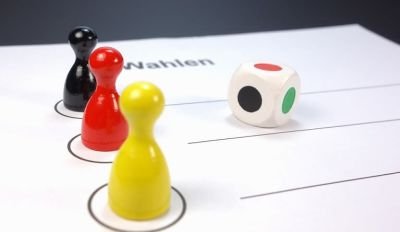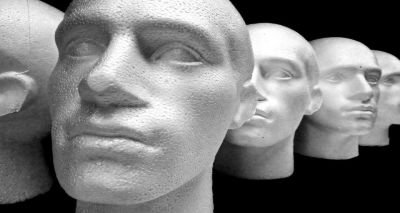
Is lottery a good idea instead of elections? Considering the fact that in my country that is becoming more and more modern, it was impossible to ensure correct programming of the vote counting system (2015 in Poland), maybe it is more worthy to use already developed and unfailing solutions (RNG - Random number Generator). Would be such a draw honest and representing civil will?
Welcome to my next post, concerning demons of random distribution. I encourage you to read the entry in its entirety to get my point.
Each time when the presidential election approaches, many of us wonder how all this makes sense and whether a single voice has any meaning. Of course, our candidate preferences are significant and make sense because in general terms, they show who has the biggest support in the country.
However, very often elections attendance is much lower than ideal 100%. For example, when one of the candidates gets 50% of the votes, but only half of the authorised will vote, it can be said that he only got the support of 1/4 of the population.
But let's go back to the lottery. Ideas to choose politicians for government by means of fate are not the fresh ideas and started in antique times. In Athenian democracy, the Council of Five Hundred was something similar to the Parliament. Among candidates for Parliament, 1000 were selected randomly, and then 500. The rest were alternatives. Interestingly, the draw of officials is not only a strange idea of the old world, Australian scientists came up with such a proposal quite recently, about which I read on the Internet [couldn't find the source now, though].
Pros and cons
The good thing would be that (if there were an equal number of candidates among the fractions), each of the fraction would have a similar number in the seats in the parliament. A good RNG would provide that true, however deviations would not indicate cheating (it's the matter of random distributions)!
The problem is that politicians nowadays seem to fail to care for people's needs and are not working together. Equal distribution could cause chaos and legislative failure.
Whether the draw would be fair..

Can machine be unbiased when selecting the most important people in the country?
At the current level of technology development, there is no reason to doubt the possibility of generating really random numbers. Each of the candidates would have their own numbered "lotto balls". We are now able to generate fully random numbers based on physical events. For example a generator based on atmospheric noise, which is unpredictable and completely random (random.org). Another is quantum uncertainty. For example, in Keno draws in Poland, numbers are drawn using a generator based on the measurement of where the photon will land after reflecting mirror (simplified). Because the result is not known before the experiment and can be in one of two different states / places it is a completely random method. With proper control and approval of the computing device, everything will be reliable.
When the votes of people do not matter at all
It is worth to pay attention to a little detail here, on the occasion of this abstract subject of the article.
When the election results are very close to each other, we are not sure that the supporters of one of the options just had more votes (sic!). The history of the world knows the cases when one of the candidates won the mandate with only a thousand votes of advantage. In one such event, the recounting of votes was ordered - as accurate as possible.
And what turned out?
The candidate's advantage decreased to several hundred votes. As a result, there was nothing left but to recount votes again. The advantage decreased to a dozen or so votes. Ultimately, the candidate won, but you can not say that with the choice of voters. Because in such situations, the uncertainty is too high.
We forget that our life is mainly driven by a chance and fate.
Better to choose the President by Human?
In this case, it may not be better to draw the result randomly [don't say :)]? In the presidential case, there may be two rounds of voting or more which is eliminating impact of uncertainty (clearly visible during parliament elections). As the president has little legislative power (Poland), and a large representative for the country better to judge by human beings, we may stay with the standard method of choice.
Thanks for your attention!
I publish mainly in polish, let me know if you want more translation of my crazy - science articles :)
Previously:
- Criminals who don't know Benford's law will always be caught!
- Edge Sorting - design your game badly and I will win millions!
- How I won in Champions League betting contest with random picks?!
- How to easy shuffle cards properly (in the matter of randomness)?
- My cryptographic ISAAC LOTTO generator wins more money than players!
Images: free pixabay and wikicommons
In the case of my country, Serbia, the same people are on the top since 1987-8. Thus I would vote for randomness. It would maybe change something.
We are so sick of those same people that an imaginary character "Ljubisa Preletavcevic - Beli" ("Love you, I'll change my mind - The Pure One") won 14% for the 2nd place on presidental elections.